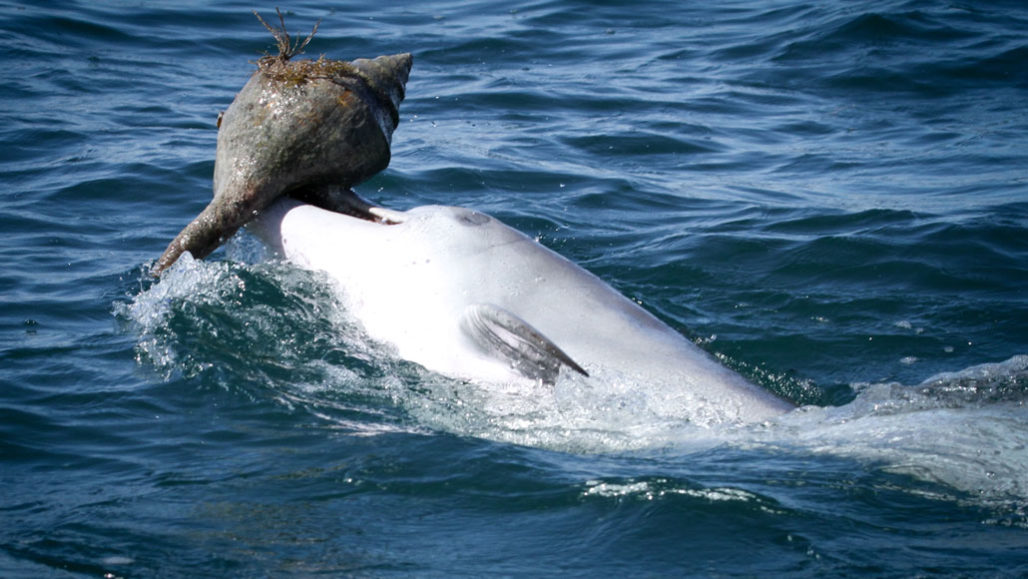behavior: The way something, often a person or other organism, acts towards others, or conducts itself.
behavioral ecologist: A scientist who studies how animal behavior relates to where animals live.
biology: The study of living things. The scientists who study them are known as biologists.
cetaceans: The order of marine mammals that includes whales, dolphins and porpoises. The baleen whales (Mysticetes) filter their food from the water with big baleen plates. The remaining cetaceans (Odontoceti) include some 70 species of toothed animals that include beluga whales, narwhals, killer whales (a type of dolphin) and porpoises.
colleague: Someone who works with another; a co-worker or team member.
dolphins: A highly intelligent group of marine mammals that belong to the toothed-whale family. Members of this group include orcas (killer whales), pilot whales and bottlenose dolphins.
ecologist: A scientist who works in a branch of biology that deals with the relations of organisms to one another and to their physical surroundings.
environment: The sum of all of the things that exist around some organism or the process and the condition those things create. Environment may refer to the weather and ecosystem in which some animal lives, or, perhaps, the temperature and humidity (or even the placement of things in the vicinity of an item of interest).
factor: Something that plays a role in a particular condition or event; a contributor.
genetic: Having to do with chromosomes, DNA and the genes contained within DNA. The field of science dealing with these biological instructions is known as genetics. People who work in this field are geneticists.
graduate student: Someone working toward an advanced degree by taking classes and performing research. This work is done after the student has already graduated from college (usually with a four-year degree).
habitat: The area or natural environment in which an animal or plant normally lives, such as a desert, coral reef or freshwater lake. A habitat can be home to thousands of different species.
humpback: A species of baleen whale (Megaptera novaeangliae), perhaps best known for its novel “songs” that travel great distances underwater. Huge animals, they can grow up to more than 15 meters (or around 50 feet) long and weigh more than 35 metric tons.
Indo-Pacific: A merging of Indian and Pacific that refers to the tropical Indian Ocean and adjoining western and central parts of the Pacific Ocean.
maternal: Adjective referring to a mother.
peer: (noun) Someone who is an equal, based on age, education, status, training or some other features. (verb) To look into something, searching for details.
prey: (n.) Animal species eaten by others. (v.) To attack and eat another species.
sea: An ocean (or region that is part of an ocean). Unlike lakes and streams, seawater — or ocean water — is salty.
shell: The protective, hard outer covering of mollusk or crustacean, such as a mussel or crab.
social: (adj.) Relating to gatherings of people; a term for animals (or people) that prefer to exist in groups. (noun) A gathering of people, for instance those who belong to a club or other organization, for the purpose of enjoying each other’s company.
social network: Communities of people (or animals) that are interrelated owing to the way they relate to each other. In humans, this can involve sharing details of their life and interests on Twitter or Facebook, or perhaps belonging to the same sports team, religious group or school.
sponge: Something that sops up liquids or other materials and holds them until squeezed out or removed in some other way. (in biology) A primitive aquatic animal with a soft, porous body.
tactic: An action or plan of action to accomplish a particular feat.
transmit: (n. transmission) To send or pass along.
whale: A common, but fairly imprecise, term for a class of large mammals that lives in the ocean. This group includes dolphins and porpoises.








